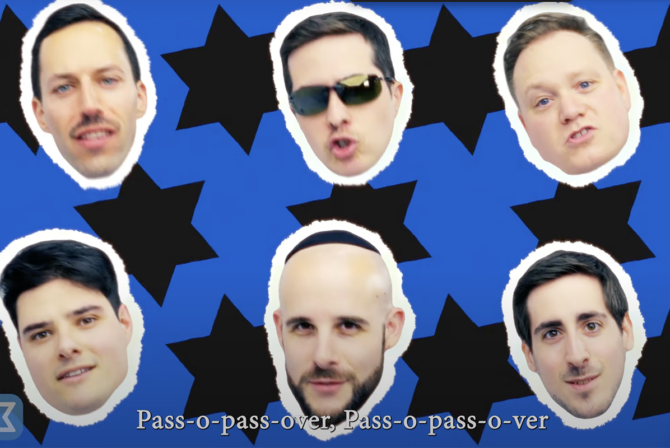“How do you pronounce it? Ah-vee-tle? Ah-vie-tle?”
“It’s pronounced Ah-vee-TAHL.”
“Ah-vittle?”
“Ah-vee-TAHL.”
“Oh…yeah. I get it. That’s pretty.”
I always dreaded the first day of class from ninth grade on. Because on that first day you had to sit through roll call–where they ran down the list, calling out students one at a time, checking off attendance and putting faces to names. It shouldn’t have been that big of a deal. But my name? It always seemed to cause a stumbling block for folks, at least outside the Jewish community. Before entering the public school system, I attended a Schechter elementary and middle school where the name Avital never caused anyone to bat an eye. But once outside that comfortable Jewish space? There was no telling how my name would be butchered. Usually, teachers would mess it up a few times before I had to pipe up to correct them, drawing the stares of everyone in class.
I grew to really hate that first day of class. Sometimes, I would even daydream about changing my name. What was so special about Avital anyway? I didn’t even have a middle name to fall back on, just the first and last name. Visions of being called Agatha floated through my head (what? I was a voracious reader and Agatha Christie was a favorite of mine through much of high school. And it’s kind of cute, no?). Anything to escape the discomfort of somebody bumbling my actual name. When they couldn’t pronounce it I felt a sense of “otherness”–one that reminded me that I was unlike the other kids who drank milk with their meat sandwiches and went to church on Sundays. At some point, I told people to just call me Avi… it was better that way.
I was used to it for the most part by the time I reached college, but it didn’t make it any easier. But that gnawing sense of embarrassment would still start in the pit of my stomach, fanning out through my body via red, heated cheeks. Well meaning professors would stumble across my name a few times before just searching the classroom for me to ask how it was pronounced. More than once they would just ask for “Norman?” thinking the registrar had mixed up the name and Avital was some sort of ethnic last name they didn’t need to concern themselves with. But no, the Norman came last.
My parents had saddled me with a name–one in memory of my paternal grandmother–and it was a name that would weigh on me for much of my adolescence. It’s not that I hated it, no. I just didn’t understand why it had to be so different. As I got older and perhaps a bit more worldly and a little wiser, I came to appreciate my unique name, despite the fact that most people never pronounced it properly the first go around. Lost in a sea of Rebeccas and Sarahs, Avital stood out–you remembered it. By my mid-20s, I was proud of my name, despite dealing with the inevitable mispronunciation (doctor’s offices, coffee shops, etc.), and even when a doctor asked me–almost accusingly–if it was my real name. I thought… if you only knew.
When I became pregnant, and my husband and I started tossing around ideas for names, I had some pretty clear criteria. Even though we had no idea if we were having a boy or a girl, I knew a few things: I wanted the name to be interesting, but not too out there or hard to pronounce. There would be no Apples, Moxie-Crimefighters, or Pilot Inspektors here. And while I wanted my child to have a name fitting of his family and heritage, I also didn’t want to saddle him with a name that would cause people to repeat (often), “How do you pronounce that? How do you spell that?”
When my son was finally born, however, he was nameless. We left the hospital with “Baby Boy” written on his birth certificate, and were assured that we could change that as soon as we came up with a name. For the next four or five days we tossed around plenty of names, but nothing seemed to stick. We wanted it to be perfect. We had his Brit Milah (circumcision) on the horizon, which created a deadline of sorts, so we buckled down. Amidst sleepless nights and nursing-filled days, we finally came up with a name. An “American” first name–one easily pronounced but not too trendy or common, and a Hebrew middle name–each name in memory of a grandfather from both my side of the family and my husband’s.
Almost six years later and my son has yet to complain once about his name, even corrected folks who try to shorten it into a nickname. He wears his full name–both the English and the Hebrew–with pride, and despite proudly knowing how to spell his full name, has not once had to do so because somebody couldn’t understand his name. And while we may not only be our names, they are certainly a part of us–one that helps build and shape who we are. Avital got me to where I am today–the good, the bad, and the mispronounced–and for that, I’ll endure a few (hundred) more requests to “can you please spell that?”







